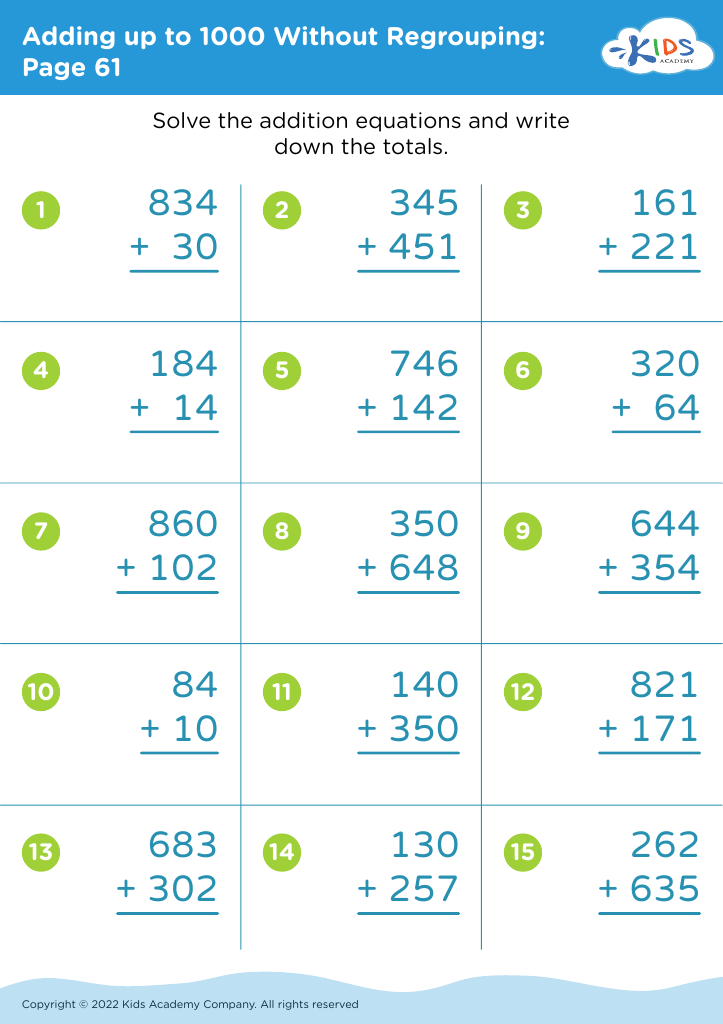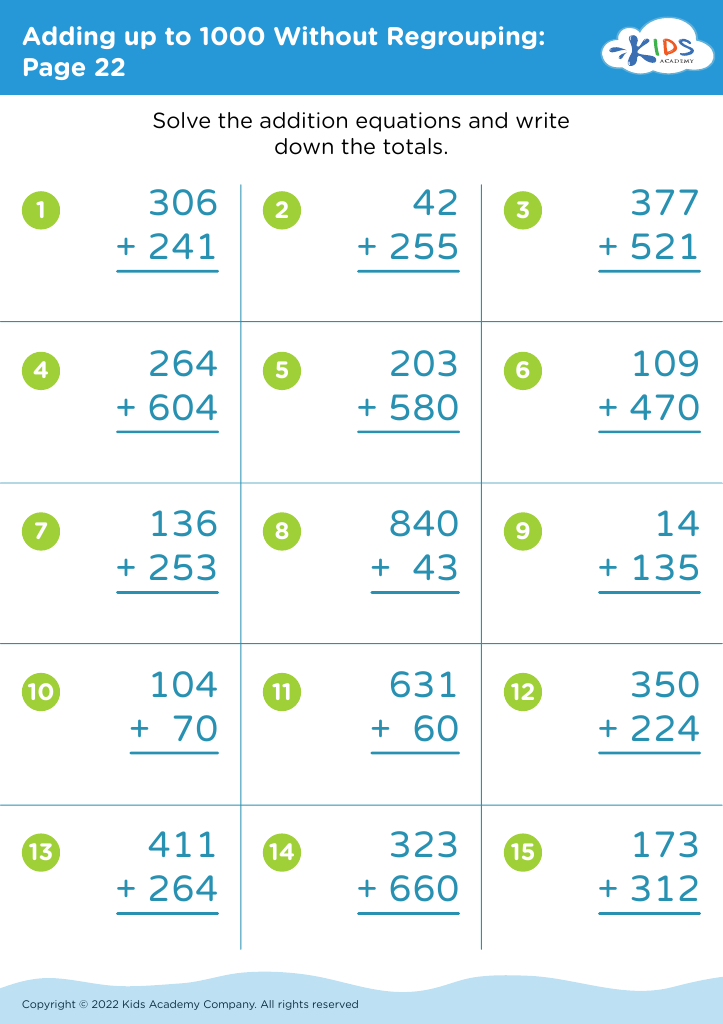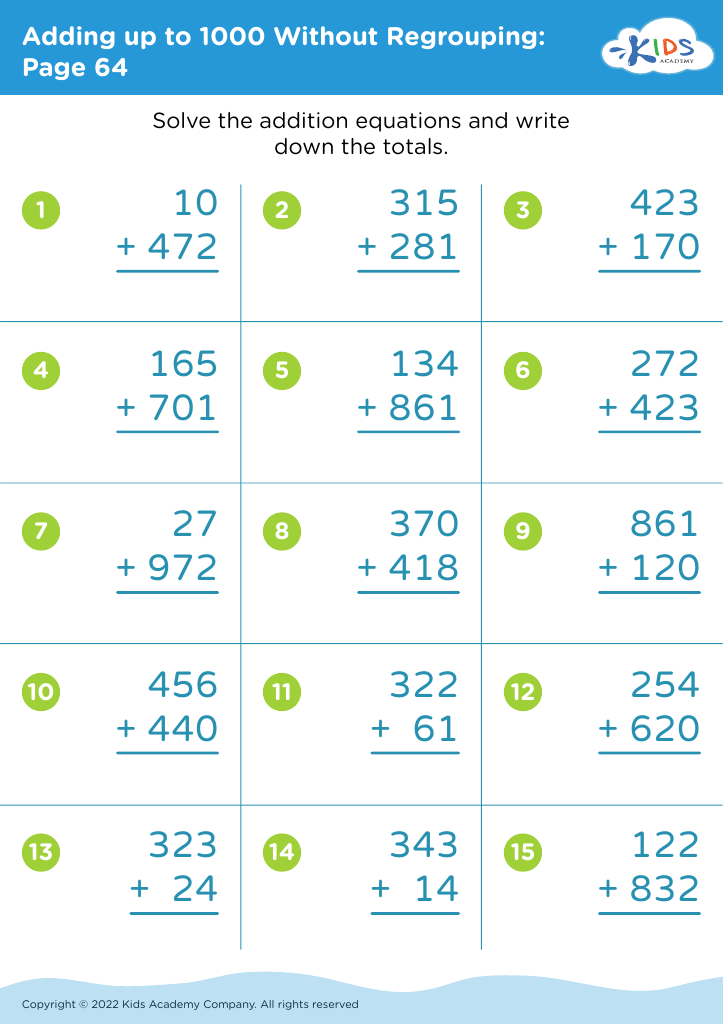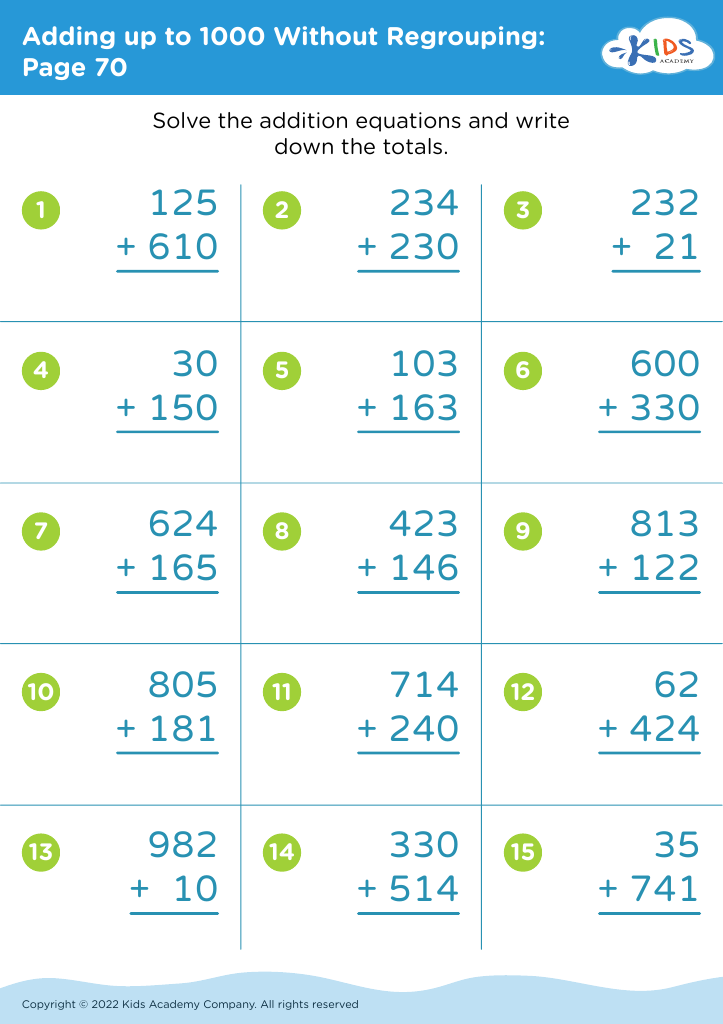Counting skills Adding up to 1000 Without Regrouping Worksheets for Ages 3-8
10 filtered results
-
From - To
Boost your child’s counting skills with our engaging "Counting Skills: Adding Up to 1000 Without Regrouping" worksheets, designed for ages 3-8. These user-friendly activities promote foundational math concepts through fun exercises that encourage students to practice simple addition without regrouping. Our worksheets support young learners as they develop confidence in their counting abilities, introducing them to the world of numbers in a playful and enjoyable way. With vibrant designs and age-appropriate challenges, these printable resources are perfect for home or classroom use. Help your child master counting up to 1000 and inspire a lifelong love for math today!
Counting skills, particularly adding up to 1000 without regrouping, are foundational mathematical concepts for children aged 3-8. Mastering these skills lays the groundwork for more complex arithmetic and enhances cognitive development. When children learn to count and add, they develop critical thinking, problem-solving, and numeracy skills that are essential for everyday life.
Parents and teachers should care because early exposure to these skills can boost a child's confidence and encourage a positive attitude toward math. The ability to perform addition without regrouping simplifies the learning process and allows children to grasp concepts more easily, preventing frustration and discouragement as they progress to more advanced mathematics.
Additionally, fostering these skills at an early age helps children understand patterns and relationships in numbers, which is vital in subjects such as science, engineering, and technology later on. Beyond academic achievement, counting and addition activities can enhance motor skills and memory through engaging, hands-on experiences.
Moreover, consistent practice in counting sets the stage for financial literacy and responsible decision-making in the future. Therefore, investing in counting skills is crucial not only for immediate educational purposes but also for long-term success in a variety of life aspects.




















